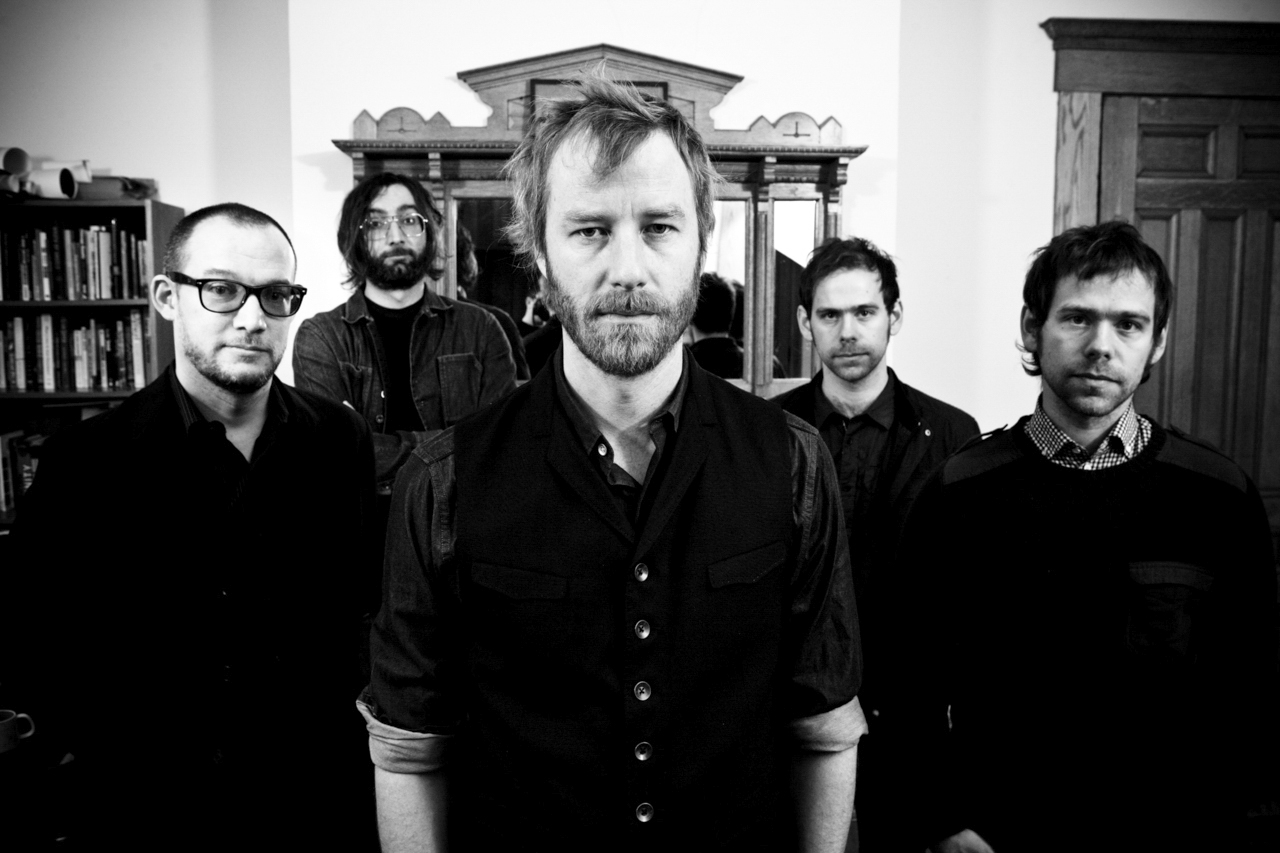
c/o thealt.com
Four years after the band’s sixth studio album, “Trouble Will Find Me,” garnered the Cincinnati-based group’s first Grammy nomination, The National released “Sleep Well Beast” on Sept. 8. Their seventh album is similar in style to previous projects by the band, dating back to 1999 when they released their self-titled debut album. On the other hand, “Sleep Well Beast” sheds light on a new contemplative and intimate standpoint for lead lyricist and vocalist Matt Berninger, while still maintaining the melancholic yet comforting vibe that fans have grown to love.
While the album is centered on core songs like the single “The System Only Dreams in Total Darkness,” the in-your-face political diatribe “Turtleneck,” or the pulsating cautionary tale “I’ll Still Destroy You,” the whole work flows together through the ups and downs of life, while finally wishing us (and our inner demons) goodnight with the closing track “Sleep Well Beast.” Generally, the album received favorable reviews from critics and audiences alike. It was the first The National’s first album to place #1 on the charts in three different countries as well as #3 on the US Billboard 200 list. “The System Only Dreams in Total Darkness” also reached #1 on the Billboard Adult Alternative Songs list, marking the first time one of The National’s songs has made it to the top of the charts. Critically, the album scored an 8.0/10.0 on Pitchfork, where music critic Jayson Greene wrote: “Controlled breakouts, bookending the otherwise-dependable pleasures of their music, provide a neat analog for the bits of craven irresponsibility and abandon you cling to in the margins of an otherwise stable existence.”
Critics also remarked how their style and lyrical motifs have evolved since their last album, released four years ago. Their time off has done The National well, as all their experiences and side projects have allowed them to feel comfortable experimenting with new sounds and quirks that catch listeners and critics by surprise. In a Pitchfork interview from May, Berninger discusses the spontaneity of guitar solos in many of the songs on the album as an interplay that allows the band to take each track where they feel like taking it.
While on hiatus, Berninger formed a new band, EL VY, and scored movies and television shows like “Game of Thrones,” while brothers Bryce and Aaron Dessner spearheaded the Day of the Dead project, a five-disc Grateful Dead tribute album released on May 20, 2016. They reunited last year in their self-constructed studio in upstate New York, which Aaron Dessner describes as a combination between his garage and a church, to record “Sleep Well Beast.”
Berninger describes the studio as tranquil and peaceful, postulating, “It’s hard to be a dick when you look out the window and there’s this tranquil pond. We were just sweeter to each other than usual.” Being able to collaborate in a healthy environment allowed The National’s musical juices to begin flowing, and the result is a masterpiece that ties together a myriad of themes, struggles, and relatable emotional journeys.
Darkness, isolation, endurance, corrupt government, catharsis, afterlife, melancholia, longing; to describe the entire album using one word is nearly impossible, but The National is able to use all these elements to create a comforting yet ominous lullaby that’s a testament to human endurance.
Each song is one component to a larger message about some of the darkest parts of life, but also allows the audience to understand how to bounce back and be resilient. The song “I’ll Still Destroy You” talks about Berninger’s struggle with alcohol and other substances, but he also accepts the fact that past actions cannot be overturned and that self-improvement is needed to to fix one’s present self. The titular track, “Sleep Well Beast,” evokes the themes of sleep and death explored in songs like “Nobody Else Will Be There” and “Day I Die,” adding the message of wishing your demons a good night sleep.
Berninger understands that he has problems like the rest of us, but seems to be saying that, by accepting they exist, we can utilize what we know to love despite these problems. We all struggle with ourselves, but our inner crises are not always our fault, like Berninger states in “Guilty Party:” “it’s nobody’s fault / no guilty party. We just got nothing / nothing left to say.”
Unspeakable forces beyond our control can bring us down, but by listening to Sleep Well Beast, we can understand that we are not alone.
Gabriel Ballard can be reached at gballard@wesleyan.edu.